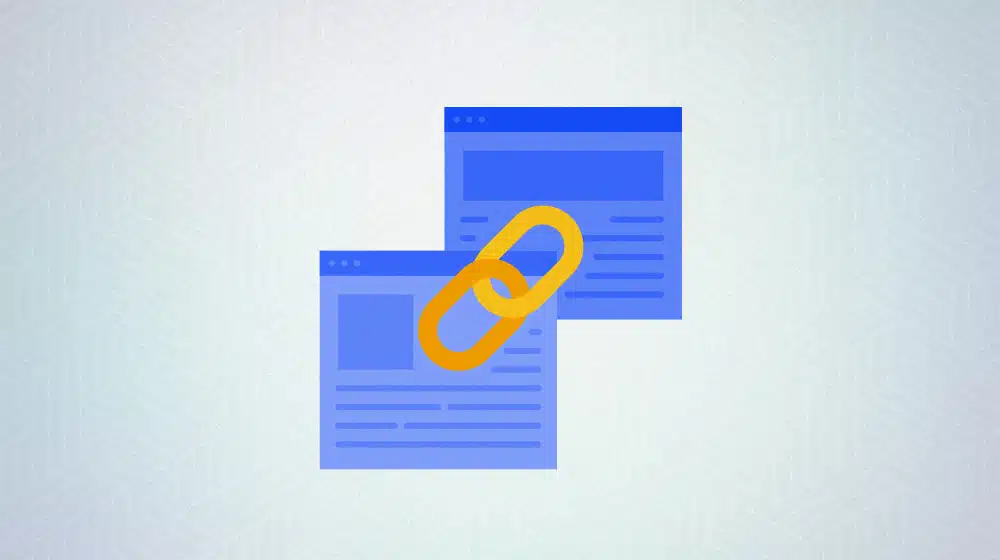What is an Editorial Link?
An editorial link is an organic inbound link that is not traded for, asked for, or paid for. Also known as earned links, these types of backlinks are highly valuable and desired by any website. They are typically attracted by specific types of content that other websites naturally want to recommend to their readers. For instance, while eCommerce product pages are unlikely to earn editorial links, helpful guides or free online calculators can attract hundreds or even thousands of such links because of their inherent value and utility.
Why Are Editorial Links Important?
Editorial links are crucial because they do not violate Google’s Spam Policies. In fact, they align perfectly with Google’s three major ranking factors. Google views links as ‘votes,’ and these votes help determine which pages should rank near the top of search results. Generally, a page with more backlinks can rank higher. Additionally, the benefits of editorial links can be spread to other pages on your website through internal linking, enhancing the overall authority and ranking potential of your site.
What Content Tends to Earn Links?
To earn editorial links, you need to create link-worthy content, also known as linkable assets. However, not all content is link-worthy, and not all linkable assets are created solely to attract links. There are many other benefits to creating content that prioritizes generating organic links instead of merely driving search traffic.
- Infographics (Static or Animated): Infographics are still one of the most popular formats for creating linkable assets. However, they should only be used when the content benefits from being presented visually.
- Online Tools and Calculators: Online tools and calculators can attract numerous editorial links. For example, a title capitalization tool can generate a significant number of earned links. Although creating these assets requires additional time and budget, they can be highly effective in gaining links.
- Studies and Research: Studies and research are excellent at attracting links, depending on the industry. For example, studies on SEO and marketing tend to be highly linked. Personal case studies can also generate many links without needing vast amounts of data.
- Definitive Guides and Tutorials: With so much information available online, definitive guides and tutorials tend to earn many backlinks. Most websites prefer linking to one comprehensive guide rather than multiple resources.
Promoting Your Linkable Assets
Even the most valuable content won’t earn links unless the right people discover it. This necessitates a robust content promotion strategy. Here are a few methods:
- Pitch to Sites in Your Niche: Reach out to sites that actively link to assets like yours. For example, if you create an infographic, find sites that publish infographics in your niche.
- Newsletters: Promote your assets through newsletters. Whether it’s your audience or a sponsored post on another email list, newsletters can build links without relying on SEO or organic search traffic.
- Paid Promotion: For assets like online calculators, consider paid promotion using PPC ads to generate links. If no one knows your tool exists, you won’t earn any new links.
- Find Outdated Resources: Look for outdated resources that need updating. Studies often get many links when first published but might not be updated. Use tools like Content Explorer to find such studies and reach out to everyone linking to the original with your updated version.
Editorial links are invaluable for boosting your site’s authority and search engine rankings. By creating link-worthy content such as infographics, online tools, studies, and definitive guides, you can naturally attract these high-quality backlinks. However, creating the content is only part of the process. Promoting your linkable assets effectively ensures that the right people discover and link to your content, maximizing its potential impact. By understanding and implementing these strategies, you can significantly enhance your online presence and achieve your marketing goals.
Leveraging Advanced Tools and Platforms for Effective Editorial Link Building
To enhance your editorial link-building efforts, leveraging advanced tools and platforms like Aysa.ro, Aysa.ai, and Adverlink.net can be incredibly beneficial. Aysa.ro, a leading SEO agency, specializes in creating high-quality, authoritative content tailored to attract editorial links. Their expertise in SEO ensures that your content is optimized not only for search engines but also for link acquisition, increasing its likelihood of earning valuable backlinks.
Meanwhile, Aysa.ai offers a cutting-edge platform for SEO automation, simplifying complex tasks such as keyword research, competitor analysis, and performance tracking. This automation allows you to focus more on creating compelling content that attracts editorial links rather than getting bogged down in technical details.
Adverlink.net is an innovative platform that connects advertisers with top-tier publishers. By facilitating collaborations and partnerships, Adverlink.net helps you promote your linkable assets to a broader audience, increasing their visibility and the potential to earn editorial links. Together, these tools and platforms provide a comprehensive approach to improving your editorial link-building strategy, making your content more discoverable, engaging, and valuable to other websites.

